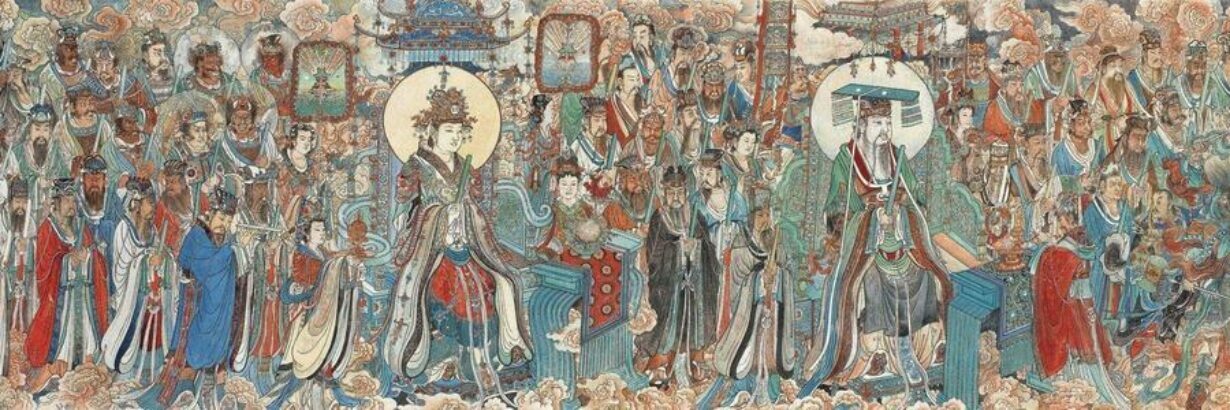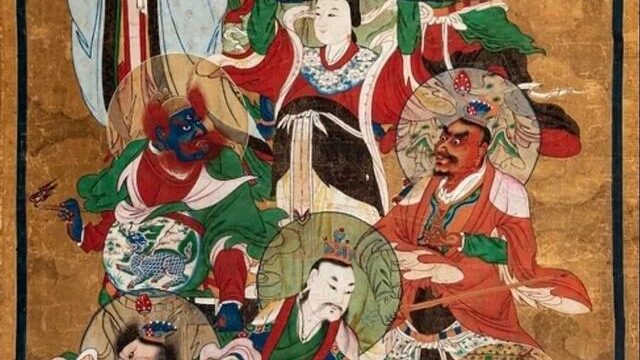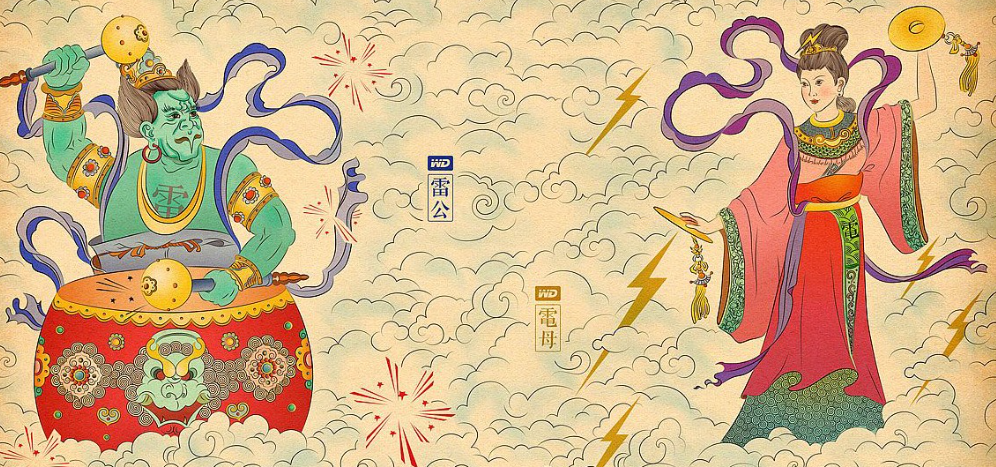Chinese folklore is rich with mythical creatures and deities that hold great significance in the cultural and religious beliefs of the Chinese people. Among these revered figures are 雷公电母 (Léi Gōng Diàn Mǔ) and 风伯雨师 (Fēng Bó Yǔ Shī), the deities associated with thunder and rain respectively.
These legendary beings have been revered and worshiped for centuries, and their stories have been passed down through generations.
雷公 & 电母 (Léi Gōng Diàn Mǔ) – The Thunder God and Goddess
雷公 & 电母 (Léi Gōng & Diàn Mǔ) are a pair of deities representing thunder in Chinese mythology. Their origins can be traced back to ancient Chinese folk beliefs and Taoist traditions. Let’s explore some of the prominent legends associated with them:
Léi Gōng is known as the Thunder God. He is depicted as a fierce deity with a red face, bulging eyes, and a muscular body. Léi Gōng carries a drum or a hammer in his hand, which he uses to create thunder by striking it. It is believed that the sound of thunder is the result of his powerful drumming.
Diàn Mǔ is the Lightning Goddess and the counterpart of Léi Gōng. She is often depicted as a beautiful woman dressed in a flowing gown and holding a mirror. Diàn Mǔ controls the lightning and is responsible for illuminating the skies during thunderstorms. She is also associated with protection against evil spirits and negative energies.
In China, temples dedicated to Léi Gōng and Diàn Mǔ can be found in various regions. These temples serve as places of worship and are especially popular during thunderstorms. Worshippers visit the temples to seek protection from lightning strikes and to pray for favorable weather conditions.
One of the most significant festivals associated with Léi Gōng and Diàn Mǔ is the Dragon Boat Festival (端午节 – Duān Wǔ Jié). Celebrated on the 5th day of the 5th month of the lunar calendar, this festival pays homage to Qu Yuan, a famous poet. During this festival, people hang up colorful pouches filled with herbs and medicinal plants to ward off evil spirits, including thunder and lightning.
风伯雨师 (Fēng Bó Yǔ Shī) – The Wind Lord and Rain Master
风伯雨师 (Fēng Bó Yǔ Shī) are two deities associated with wind and rain in Chinese folklore. They have been worshiped and revered for their control over these natural elements. Let’s explore their origins and the legends surrounding them:
Fēng Bó is known as the Wind Lord , is often depicted as a mighty warrior riding a dragon or a chariot, wielding a sword or a fan to control the winds. It is believed that Fēng Bó brings cool breezes in summer and gusty winds during storms. His power over the wind is both awe-inspiring and fearsome.
Yǔ Shī is the Rain Master and the counterpart of Fēng Bó. Yǔ Shī is often portrayed as an elderly man with a long white beard and a Taoist robe. He carries a staff or an umbrella, which he uses to create rain. Yǔ Shī’s role is crucial in maintaining a balance between rainfall and drought, ensuring the fertility of the land and the prosperity of crops.
In rural areas of China, farmers often worship Fēng Bó and Yǔ Shī during agricultural festivals. These festivals are dedicated to seeking their blessings for abundant rainfall and favorable wind conditions, which are essential for a successful harvest. Rituals involve offerings, prayers, and performances that honor these deities.
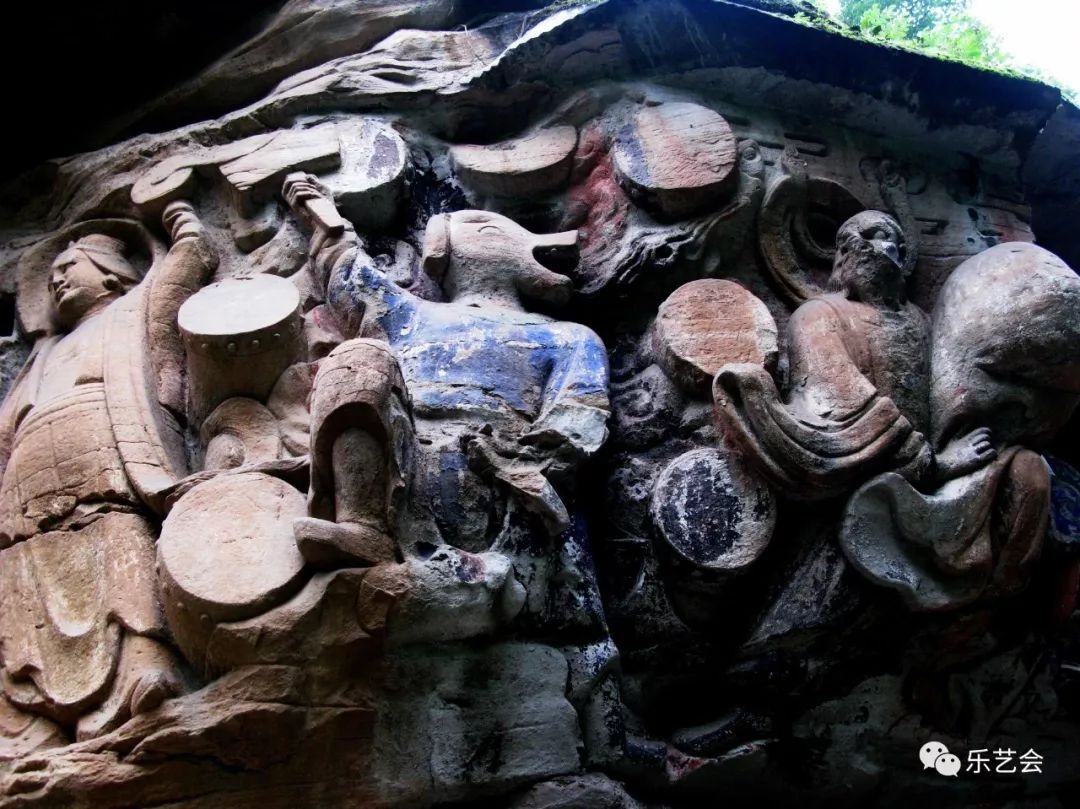
The worship of 雷公 & 电母 (Léi Gōng & Diàn Mǔ) and 风伯 & 雨师 (Fēng Bó & Yǔ Shī) has had a profound impact on Chinese culture and society. Their legends and symbolism have permeated various aspects of Chinese life, from religious practices to art, literature, and festivals.
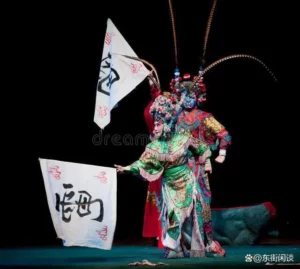
The characters of Léi Gōng, Diàn Mǔ, Fēng Bó, and Yǔ Shī have become enduring cultural symbols associated with the forces of nature. They represent the power and unpredictability of thunder, lightning, wind, and rain. Their presence in folklore and mythology has contributed to a deeper understanding and reverence for the natural world.
The worship of these deities reflects the people’s strong connection to nature and their recognition of its significance in their lives. The legends surrounding 雷公电母 (Léi Gōng Diàn Mǔ) and 风伯雨师 (Fēng Bó Yǔ Shī) highlight the need for balance and harmony with the environment. This awareness continues to shape environmental attitudes and conservation efforts in China.
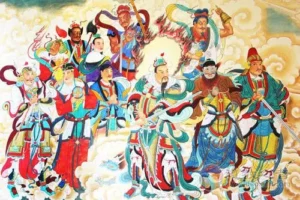
The rituals associated with these deities often involve the use of herbs and medicinal plants to ward off evil spirits and promote well-being. This practice has contributed to the development of traditional Chinese medicine and herbalism, which emphasize the healing properties of plants and their connection to the natural world.
Written and Translated by Daoist Liu Cheng Yong, German Daoist Association.
